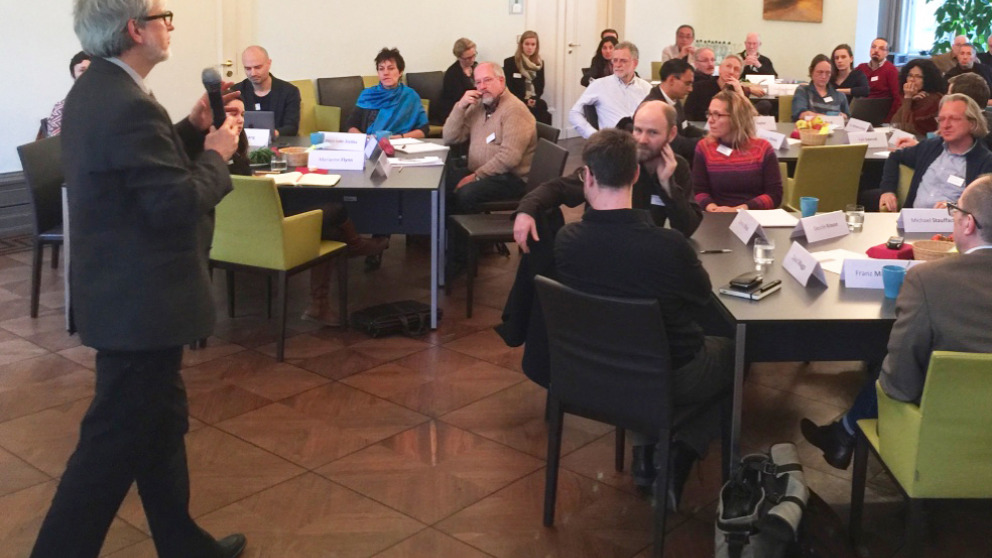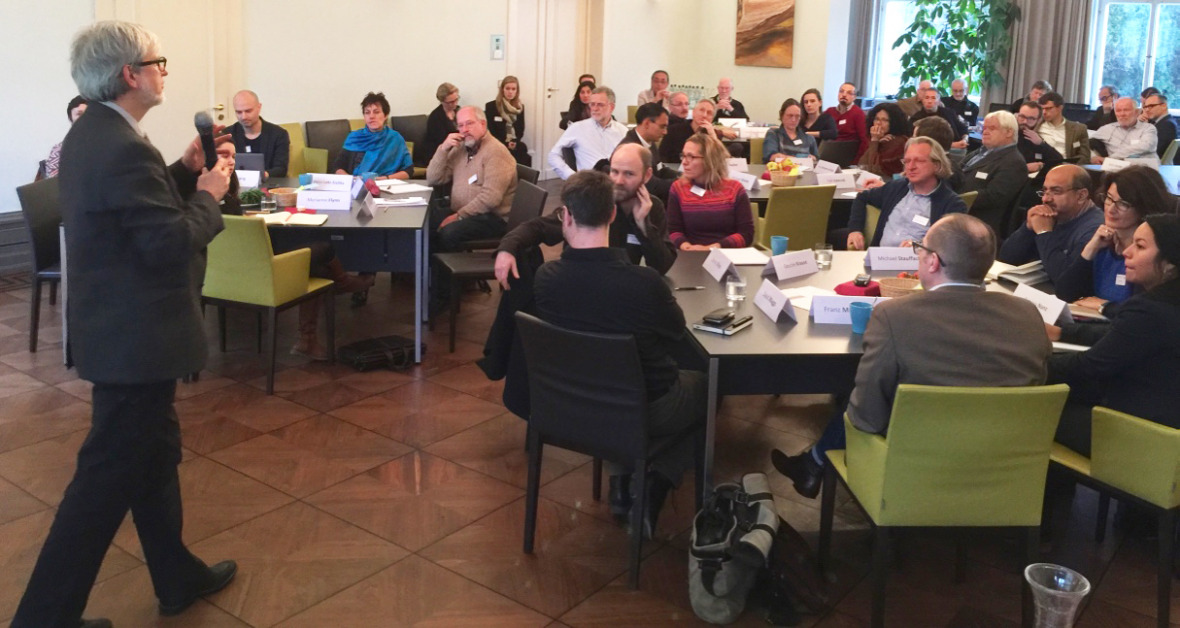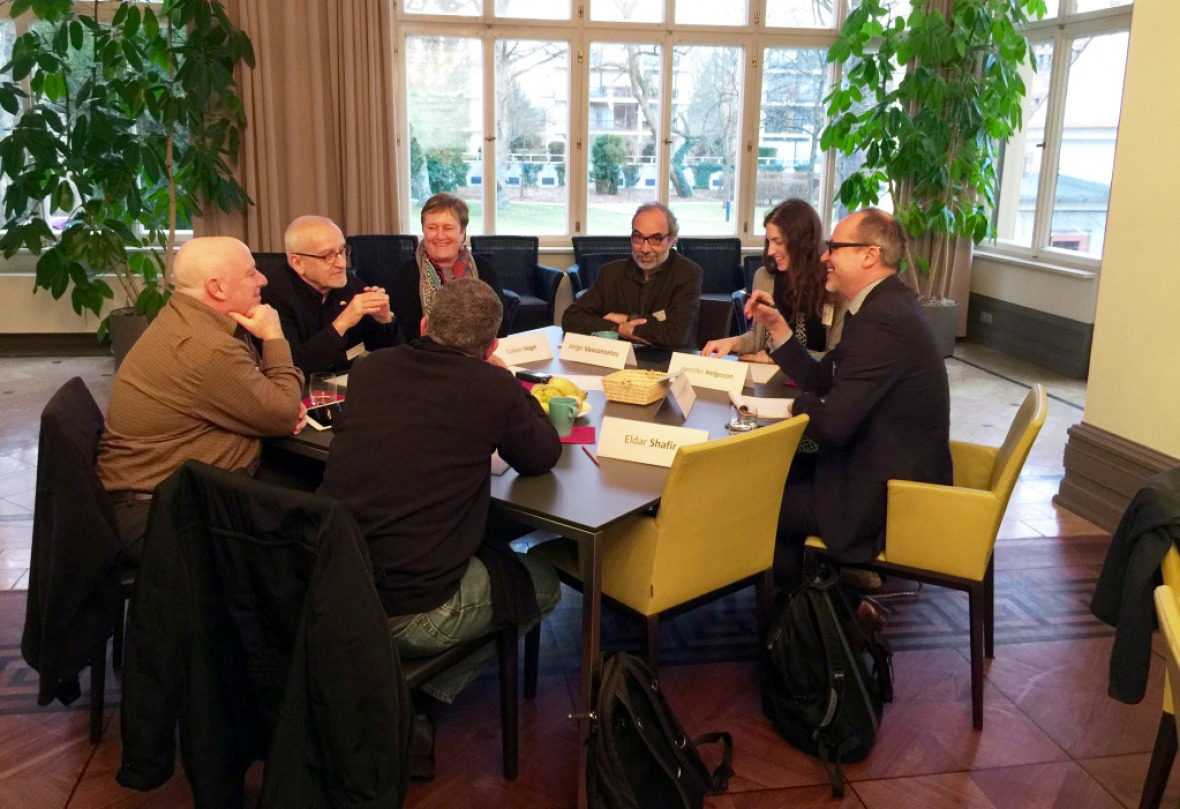How Can We Encourage Collective Behaviour Change towards Sustainable Futures? Experts Develop New Approaches
22.02.2016

A growing body of scientific information exists about the rapid global changes that impose critical challenges on human societies. These challenges include climate change, biodiversity loss, and global limits of essential natural resources. One central issue that has not been adequately addressed within this field is the processes that support decisions, behaviours and practices towards just, equitable, and sustainable futures in diverse local contexts. The Knowledge, Learning, and Societal Change international research alliance (KLASICA.org), chaired by Ilan Chabay, Senior Advisor for Global Sustainability Research at the IASS, has launched an international research programme to address this issue, beginning with a workshop at the IASS on 7–9 February 2016 to consider the concepts, methods and case studies that are essential for understanding collective behaviour change. The workshop was held within the IASS research programme Emerging Technologies and Social Transformations in the Anthropocene. It brought together experts from the natural sciences, psychology, sociology, art, education, philosophy, theology, and history – in total 35 external participants from a dozen countries and about 15 researchers from the IASS – to develop a portfolio of analytical, epistemological, and methodological approaches that improve our understanding and capacity to facilitate transformative societal change toward sustainable futures.

The workshop topics were framed by five short talks ranging in order from broadly historical to specific issues in research and societal practice. The discussions led the group to recognise the need for greater understanding of both the conditions that support or hinder changes in collective behaviour or practice, and the types of case study that should be considered in order to improve our understanding of transformative policies, practices, and conditions. The participants discussed issues of emergent and intentional transformations, gradual and rapid changes in collective behaviours, the potential for unintended consequences or “knock-on” effects, and the challenges of understanding the common features of transformation in the enormous range of different bio-physical, cultural, and social contexts.
Among the topics discussed was the need to change the predominant sustainability discourse, which emphasises environmental constraints and limits in order to motivate broader participation. John Robinson of the University of Toronto contrasted two ways of communication: persuasive communication and emergent dialogue. Persuasive communication aims to convey the “correct story” in ways that change individual or policy behaviour. Emergent dialogue focuses on opportunities and allows participants to explore preferred outcomes, consequences of choices and strategies for change. “Persuasive communication is fine when we agree on societal objectives, but when the issues are deeply contested like the future of the city, emergent dialogue seems more appropriate. In areas of contestation we should not impose our views,” Robinson argued. He also stressed that changing collective behaviour is more about establishing different routines in a society – for example with respect to waste separation – than about getting every individual to make a conscious decision to change their behaviour.
Another major topic was the need to transcend disciplinary boundaries in order to achieve collective changes in behaviour. For this a sense of belonging is critical, stressed Ulli Vilsmaier of Leuphana University of Lüneburg: “How can we succeed in establishing a heterarchic relationship, or indeed a sense of unity among actors who come from different fields of society and have different roles and responsibilities in a transdisciplinary research process? While a common, overarching goal is essential for this, it is by no means sufficient.” What is also needed are spaces and institutions that lie between established societal fields and thus enable belonging in diversity – spaces that are constituted from difference and have the capacity to overcome existing conditions and hegemonies, Vilsmaier said. This view is closely related to prior work published by J. David Tàbara (who also attended the workshop) and Ilan Chabay on “Coupling Human Information and Knowledge Systems with social–ecological systems change: Reframing research, education, and policy for sustainability.”

The workshop was intense and deeply engaging for the participants, as was clearly evident from the discussions and comments. “The framing talks and intense discussions in the three days resulted in insightful and creative ideas that will shape our way forward with KLASICA and also established an energised and committed core group to expand our network for research and action on collective behaviour change for sustainable futures,” Ilan Chabay said.
The output from the workshop will be an initial paper in a major international research journal, as well as Twitter, blog, and other media content. The publications will set out an interdisciplinary and transdisciplinary research framework on collective behaviour change toward sustainable futures, as well as criteria for selecting and analysing case studies of collective behaviour change. This framework, which is based on the portfolio developed in the workshop, will be the basis for soliciting and evaluating submitted contributions to symposia on case studies planned for November 2016 in Taiwan and early 2018 in South Africa. The symposia will focus on analysing empirical evidence for the success or failure of collective behaviour change in the context of sustainability. They will examine lessons learned from projects with varying degrees of perceived success or failure, including projects that did not narrowly or intentionally focus on behaviour or practice, but which nonetheless may yield valuable information on transformation through collective behaviour change. It will also be an opportunity to evaluate the different approaches to collective behaviour change for sustainability for their effectiveness, inclusivity, and scalability and thus provide guidance for actively encouraging and nurturing transformative change toward just and equitable sustainable futures.